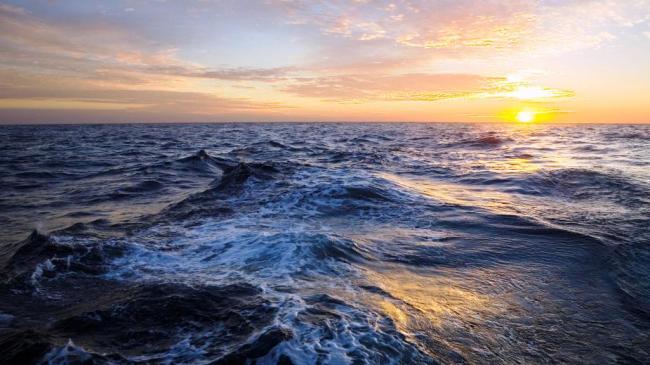
Research identifies all the different ways the sea supports human wellbeing
London, Aug 25 (IBNS): A study led by the University of Liverpool that catalogued all of the links between marine biodiversity and the different ways we rely on the sea found more than 30 ways it supports well-being including providing a source of nutrition, supplying raw materials and supporting recreational activities.
A team of researchers explored the different ways that European seas including North East Atlantic Ocean, the Mediterranean Sea, the Baltic Sea and the Black Sea support and link to human wellbeing.
It is known that marine biodiversity supports human wellbeing in many ways and that people benefit from links between the flora and fauna of the sea and the ‘ecosystem services’. However, such an extensive catalogue of the links between marine ecosystems and human wellbeing has not previously existed.
The study found 31 different ecosystem services including providing a source of nutrition through supply of seafood, providing raw materials, for example marine plants used in cosmetics, producing oxygen (the sea is estimated to produce half of the oxygen we breathe), providing natural flood defences and also providing opportunities for recreation, artistic inspiration and enhancement of spiritual wellbeing.
Some of these, like seafood, have significant economic value and others enrich our lives in other essential and non-essential ways.
Fiona Culhane, lead author of the study and a researcher with the University’s School of Environmental Sciences, said: “We rely on the sea in more ways than we often realise. Our study has tried to document all of these ways.
“This is important because these ecosystem services rely on the condition of the biodiversity that supplies them. If we don’t recognise this and protect biodiversity, we risk losing the benefits we get.”
A key aspect of the study was the development of meaningful units in which to group marine biodiversity in relation to how they supply ecosystem services. The service providing units (SPUs) developed include combinations of taxa (e.g. seabirds, macroalgae, fish) with all habitats (e.g. littoral rock, oceanic waters) they spend time in.
Leonie Robinson, a Senior Lecturer from the University’s School of Environmental Sciences who was the principal investigator on this study, said: “The development of meaningful service providing units allows managers to fully appreciate which aspects of biodiversity underpin the sustainable supply of services that humans rely on.
“Without making the link between habitats and mobile marine taxa like whales and fish, it is likely that habitats that may seem unconnected or remote are missed when considering conservation. This could lead to a lack of protection of relevant habitats and taxa risking the sustained supply of essential marine ecosystem services.”
The study was carried out from 2014-2018, as part of ongoing work with the University of Liverpool and the European Environment Agency’s European Topic Centre for Inland, Coastal and Marine Waters, and as part of a European Horizon 2020 project called AQUACROSS.
Support Our Journalism
We cannot do without you.. your contribution supports unbiased journalism
IBNS is not driven by any ism- not wokeism, not racism, not skewed secularism, not hyper right-wing or left liberal ideals, nor by any hardline religious beliefs or hyper nationalism. We want to serve you good old objective news, as they are. We do not judge or preach. We let people decide for themselves. We only try to present factual and well-sourced news.







